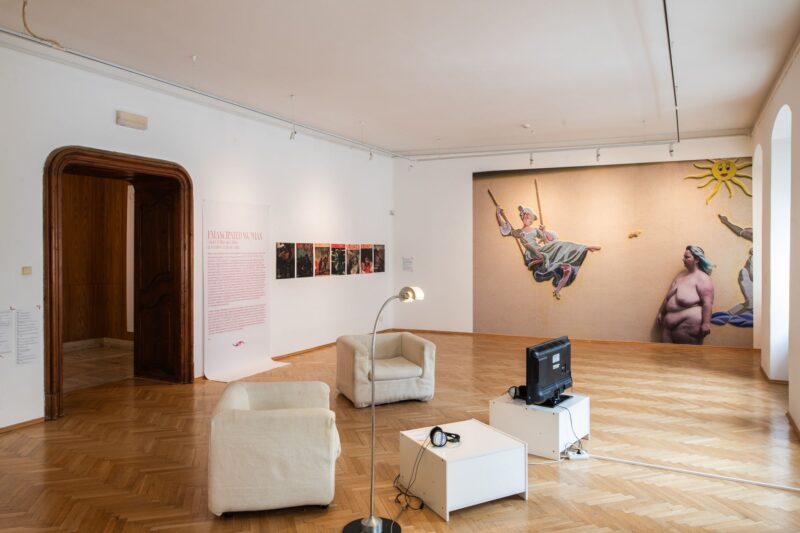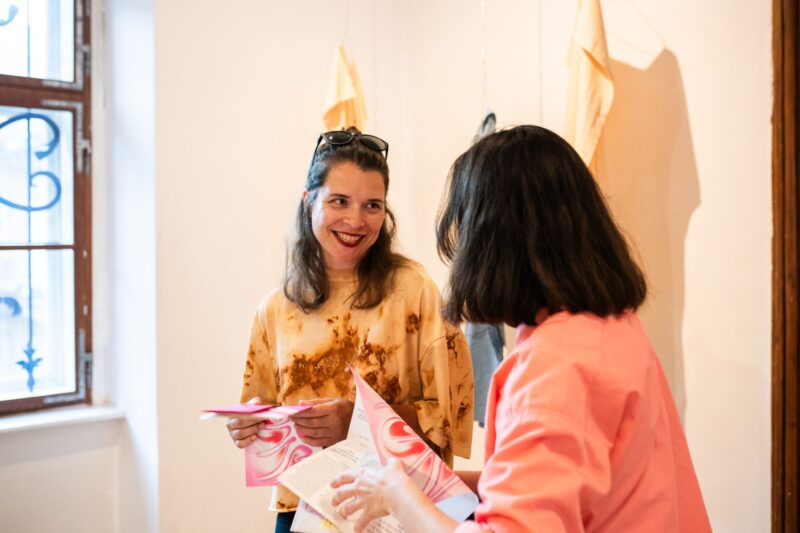The aim is to present approaches that explore power mechanisms of the architecture environment, and which are grounded in collaboration, solidarity, environmental sensitivity, and exposure of the systemic inequalities that affect our lives. The central theme of the exhibition is a safe space for meeting and sharing, as well as care as an everyday activity and socially shared responsibility that we direct towards ourselves, others, and our planet.
Whither do women architects vanish? What obstacles do they face in their profession, and what emancipatory strategies can benefit them? Who owns public space, and what is feminist architecture? The exhibition comprises art and art historical installations that raise these questions and which address inequalities in architectural education and employment, gender paradoxes from the era of state socialism, and networking of women in architecture. The artistic interventions thematise feminist spatial practices of care that emerge from specific cultural and social contexts, and which entail a diversity of experience, environment, and the body politics.
Pakistani architect Yasmeen Lari, who is devoted to improving the lives of disadvantaged communities by building with low-cost, zero-waste materials, said upon receiving the Royal Institute of British Architects’ gold medal in 2023 that “the role of the architect should be more activist”. Similarly, since the 1970s, other feminist theorists, architects, and artists have, through their research and work, challenged architecture as an élite environment with no relationship to environmental and social issues. “Feminism is for everybody” (bell hooks), therefore we consider it important to commemorate their legacy and to create a space for sharing and support, for articulating our own experiences, and for exchanging past and present feminist strategies and tools.
Authors
Menna Agha (EG/CA), Brady Burroughs a kol. (SE), Alžběta Brůhová (Platforma Architektky, CZ), Klára Brůhová (CZ), Stanislav Biler (CZ), Monika Bočková (SK), Helena Huber-Doudová (DE/CZ), Katarína Csányiová (SK/AT), Petra Hlaváčková (CZ), Tomáš Hlaváček (CZ), Michaela Janečková (CZ), Ziliä Qansurá (Bashqortostan/AT), Alina Matějová (CZ), Šárka Malošíková (CZ), Henrieta Moravčíková (SK), Markéta Mráčková (COSA, CZ), Denisa Nečasová (CZ), Martina Pouchlá (CZ), Emília Rigová (SK), Barbora Řepková (CZ), Nicole Sabella (DE/AT/CZ), Spolka (SK), Julischka Stengele (DE/AT), Šárka Svobodová (4AM Fórum pro architekturu a média, CZ), Barbora Šimonová (COSA, CZ), Janica Šipulová (Consequence Forma, CZ), Jaroslav Šlauf (JAUF, CZ), WOVEN (SK), Nikola Zahrádková (CZ)

